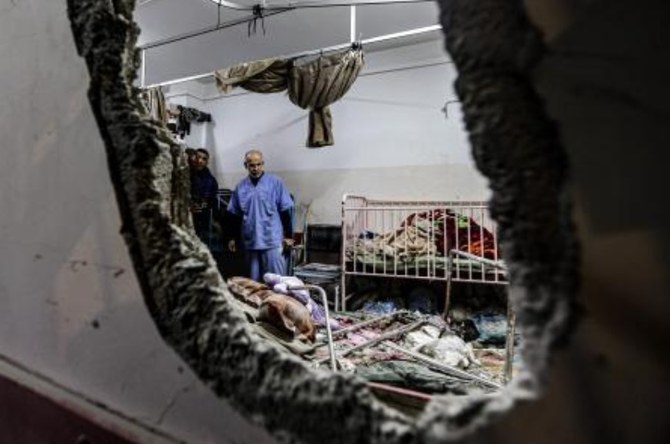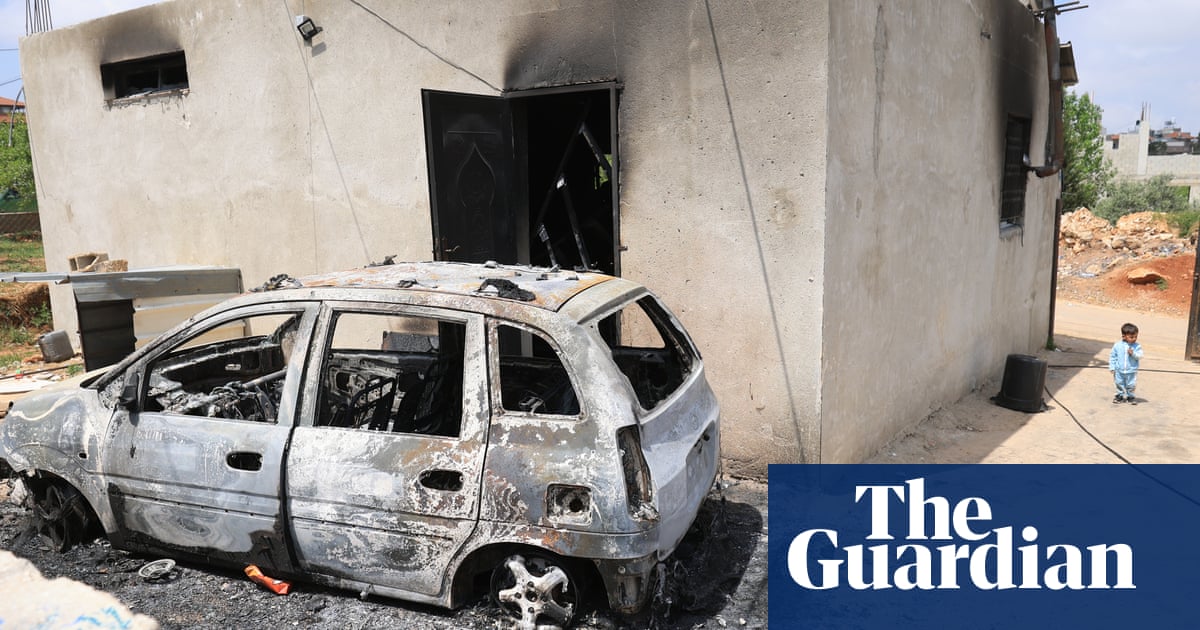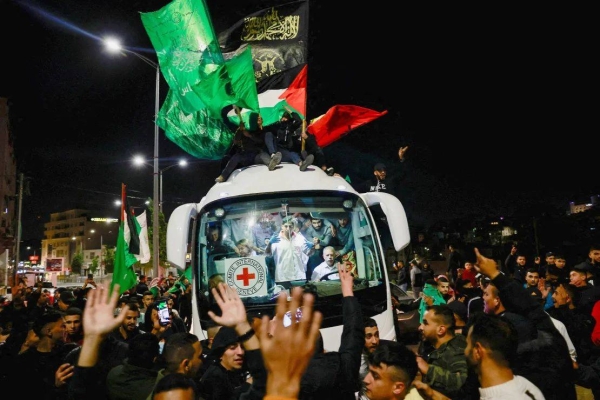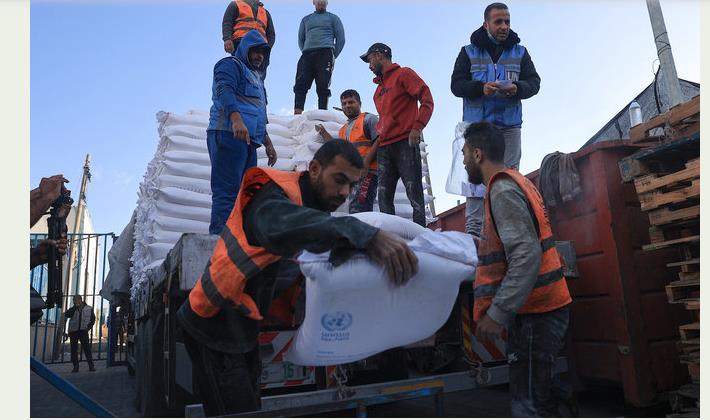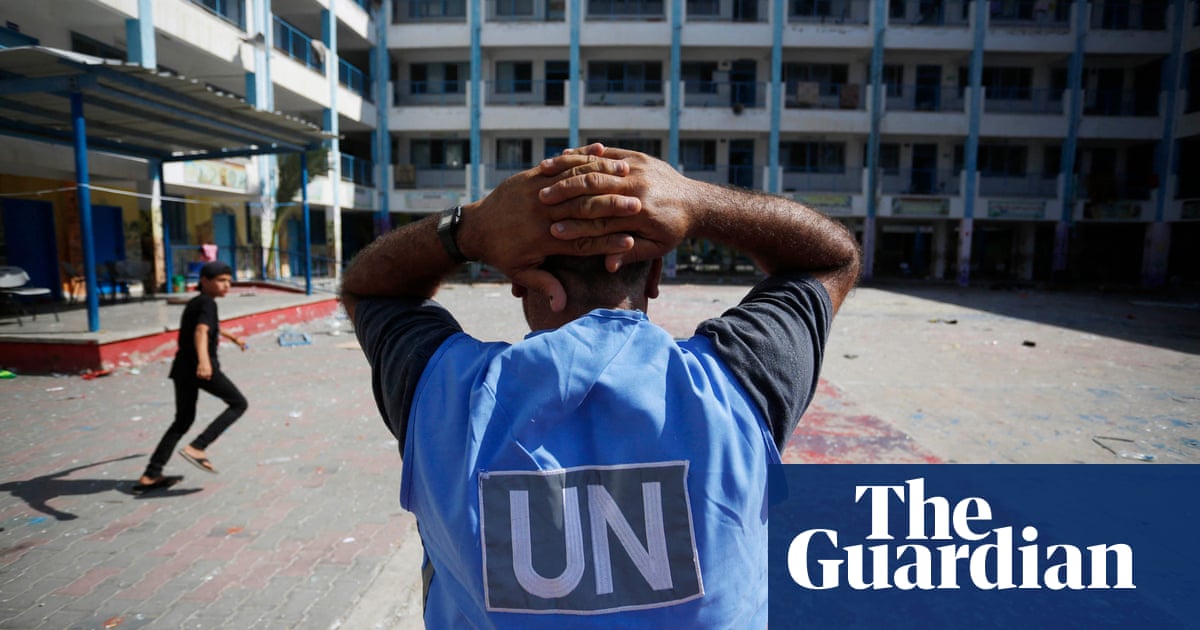
UN staff working with Palestinians in the occupied West Bank have been subjected to a systematic campaign of obstruction and harassment by the Israeli military and authorities since the beginning of the conflict in Gaza five months ago, according to internal UN documents obtained by the Guardian.
The documents record hundreds of incidents ranging from the alleged blindfolding and beating of UN staff at checkpoints to the use of UN facilities by Israeli troops as firing positions during raids on refugee camps in which Palestinians were killed.
The documents have been compiled by Unrwa, the United Nations Relief and Works Agency for Palestine, which has provided essential services to the Palestinians in the occupied territories for decades. The agency has been at the centre of a bitter controversy after being accused by Israel of collaborating with Hamas in Gaza. It denies the charge and says no solid evidence has been presented to support the allegation.
Juliette Touma, Unrwa’s spokesperson, said the incidents in the West Bank – where the agency runs 96 schools and 43 health clinics for 871,000 registered refugees – detailed in the internal documents were “part of a wider pattern of harassment that we are seeing against Unrwa in the West Bank and Jerusalem”.
A spokesperson for the IDF said they had “no issues with Unrwa in the West Bank”, adding: “We are not trying to harass them. There is nothing we intentionally do to disturb their important work. We are unable to verify these claims and we have not been presented with evidence [for them]. We have a good relationship with Unrwa and other organisations in the West Bank.”
A barrage of rhetoric aimed at Unrwa by senior officials has inflamed public sentiment in Israel. There have been weekly protests at the agency’s field office in East Jerusalem as well as a previously unreported shooting earlier this year when an unknown driver fired a handgun from his car at the driver of an Unrwa truck in the city. The attack is being investigated by police.
The documents detail how Unrwa’s health centres in the West Bank ran low on crucial supplies after a shipment of medicine was held up by Israeli customs for more than two months in Jordan. The 42-pallet cargo, including antibiotics, antihistamines, painkillers and treatment for diabetes, hypertension and schizophrenia arrived in January in Amman but was only cleared on Sunday, two hours after the Guardian contacted Israeli authorities about it. A spokesperson for Israeli customs denied there had been any delay.
The documents also allege that “Unrwa staff [in the West Bank] have been verbally abused, subject to identity checks and searches, and required to lift their clothing to demonstrate the absence of weapons”.
In addition, “increasingly egregious violations of privileges and immunities of the UN have been recorded, including entries into Unrwa installations by armed personnel as part of ISF [Israeli security forces] operations, as well as damage to Unrwa installations incurred during the course of such operations”.
The documents cite the Convention on the Privileges and Immunities of the UN, adopted in 1946, under which UN agencies “are entitled to carry out activities in support of their mandate without hindrance”.
In one of the most serious alleged incidents described in the documents, two Unrwa staff in a marked UN vehicle were stopped by soldiers at a temporary checkpoint in February 2024 as they tried to leave a Palestinian village near Bethlehem.
The soldiers, who “forcefully” removed the keys and “forced the staff to get out … at gunpoint”, then searched the vehicle and mocked the staff “making reference to the staff belonging to Hamas”. The staff were then instructed to kneel down, were blindfolded, handcuffed with plastic cable-ties and beaten before a senior officer intervened, the documents allege.
The documents also describe the use of Unrwa facilities by Israeli troops during military operations in the West Bank, including at least one when several Palestinians were killed.
Since 7 October, according to the documents, Unrwa has recorded 135 incidents affecting its clinics, schools or offices, from incursions and misuse to military operations resulting in teargas canisters or bullets landing in them.
The documents allege that on 8 December, Israeli security forces launched a raid targeting militants in al-Faara refugee camp in the northern West Bank, where they broke through the gate of the Unrwa health centre there and took down its UN flag.
“The health centre was clearly marked with a UN flag and signage. At least 10 armed ISF personnel broke into the building, which was closed … They were seen removing the UN flag on the roof and took positions on the balconies, upper-floor windows, and roof of the building with their firearms pointed towards the camp. After ISF withdrew from the camp and when Unrwa staff were able to safely return to the health centre, [spent] ammunition was found on the premises,” the documents say.
The Israeli raid led to the deaths of six Palestinians, including a 14-year-old.
The documents are also critical of militants based in many camps, who Unrwa calls “armed actors”.
“To divert ISF incursions to camps, armed actors in some of the refugee camps have set up a system of improvised roadblocks and IEDs, some of them adjacent or close to Unrwa installations, putting refugees using those services and staff providing them at further risk,” the documents say.
One site of repeated problems is al-Arroub refugee camp, south of Bethlehem, which has been placed under heavy restrictions by Israeli authorities since 7 October, with new metal gates installed to control access to a nearby highway and earth or rocks dumped to block backroads. In one instance, the documents allege, security forces notified the local community that the new gates would be closed for three days because stones had been thrown at a watchtower.
Despite efforts to coordinate with Israeli authorities, Unrwa staff in and around the Arroub camp have frequently been blocked from onward travel, have had their vehicles searched and have been insulted or accused of supporting terrorism, the documents claim.
“Sometimes access has been completely denied, regardless of coordination. Access procedures can sporadically change without prior notice, depending on the troops manning the checkpoint and there is no predictability. These factors have made operational planning very difficult for Unrwa on Arroub camp,” the documents say.
Israeli officials say the harsh measures are necessary to prevent terrorist attacks in Israel launched from the West Bank. Since 7 October, 15 Israelis, including four members of Israeli security forces, have been killed and 99 injured in the West Bank, including East Jerusalem, and Israel according to the UN.
“Since December, Israel’s decision to ‘take off the gloves’ against these groups has significantly reduced the number of successful attacks. In all, the IDF has thwarted at least 665 significant attacks since 7 October,” Neomi Neumann, a visiting fellow at the Washington Institute for Near East Policy and former head of the research unit at the Israel Security Agency wrote earlier this month.
One Unrwa document says that closures and movement restrictions in the West Bank have created “deepening economic hardship, particularly for Palestinians who work in a different city or who rely on travel to Israel for work”.
“The longer access and movement restrictions are in place, the greater the potential for further instability in the West Bank,” it concludes.
Since 7 October, 418 Palestinians have been killed – including 407 by Israeli security forces and nine by settlers – across the West Bank, including East Jerusalem, also according to the UN.
The war in Gaza was triggered by a surprise attack into southern Israel in which Hamas killed 1,200 people, mostly civilians, and took 250 hostages. The ensuing Israeli offensive has so far killed more than 31,000 people, mostly women and children, health officials in Gaza say.





